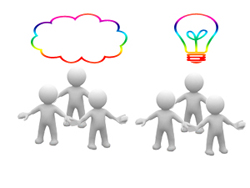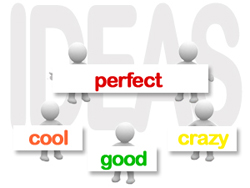Transforming learning communities
We provide outstanding training, coaching and comprehensive guidance on becoming a professional learning community.
Read more

We provide outstanding training, coaching and comprehensive guidance on becoming a professional learning community.
Read more

Changing key influencer mind sets, including those of teachers, employers, trainers and mentors is the key challenge to changing learning best practices.
Read more

The core business of a learning environment is to deliver the highest levels of positive mind growth and attainment for their participants.
Read more

The training and coaching methods we use and the teaching and learning strategies we share with teachers are founded on the best of current
Read more
‘A professional learning community is an inclusive group of people, who are motivated by a shared vision of learning who support and work with each other to find ways to inquire into their practice and together learn and develop new and better approaches that will enhance pupils learning’. (Stoll et al, 2005)
Current educational research indicate that successful schools learning environments operate as learning mentor communities which value collaboration, innovation and reflective practice. They regard learning and the improvement of development as the central activity for all the adults and pupils within the school, or employees or trainers in the work place. Teachers in learning communities operate as researchers and leaders of learning, seek their own solutions and view their mission as enabling pupils at both adult and youth levels to taking increasing responsibility for and control of their own learning.
‘In a fast changing world if you can’t learn, unlearn and relearn you are lost’ (Stoll, L et al , 2003)
Professional development days without any barometer on retention, actual application or even shared belief in the proposition make negligible impact on long term changes to practice or mind set. Long term and sustainable change is brought about by high quality training, coaching and reflective practice over time which encourages teachers and trainers to identify their own self found solutions to the challenges of teaching and learning.
Teachers only change their professional practice when they can see a pay-off in terms of their own improved effectiveness in the classroom and have identified the evidence of improved pupil progress for themselves. This process takes time to evolve and impact on attitudes, beliefs, values and practice. The journey begins with encouraging teachers to make small but significant tweaks to practice that pay off immediately in terms of modifying pupil learning behaviours and improving their learning. Over time, through classroom based inquiry, online technology and peer coaching, we encourage active member partner teams to take creative risks and further develop and embed highly effective pedagogy through reflective practice. In this way we empower staff or coordinators to become leaders of learning, collaboratively seeking out the challenges to outstanding teaching and learning and identifying their own solutions.
When our implementation involvement concludes, what remains is a sustainable Against the Odds Mentality process which empowers teaching and training development, supports ongoing reflective practice and propels innovation in delivery, teaching and learning.
Excellence in mentoring fosters deep learning characterized by pupils who are reflective and are searching for their own ways of knowing and understanding. Excellence in mentoring challenges pupils to respond creatively, fosters both independent and collaborative learning, develops learning to learn skills and actively involves pupils in their own learning and progress.
Our work in classrooms
For more than 15 years we have worked in a coaching capacity with teachers in their classrooms encouraging inquiry, innovation, reflective practice and peer coaching. We learn in partnership with them and they inform and validate the quality of our work with schools.
Our core provision consists of:
A comprehensive and highly acclaimed core program: “TEACHING ORDINARY MIRACLE MINDS TO COMPETE”. This consists of up to 6 training days scheduled across at least two terms to enable delegates to develop and embed highly effective internalization skills by means of in-house classroom based trial and on line lesson study. The project e is supported by in-house collegiate ambassador coaching days for delegates.
Working flexibly with school networks, partnerships and consortia to facilitate cross school communication and learning by means of networked training programs, innovation, Lesson Study, peer coaching and in-house coaching provided by the lead trainer.
Principles which underpin our training courses
Cutting edge course content focused on the key components of highly effective lessons:
Cutting edge training and professional development characterized by active, experiential and reflective teacher engagement:
We have identified three central characteristics which underpin good to outstanding learning:
Current research and best practice brings together four key strands of effective pedagogy where the art of teaching meets the science of learning.